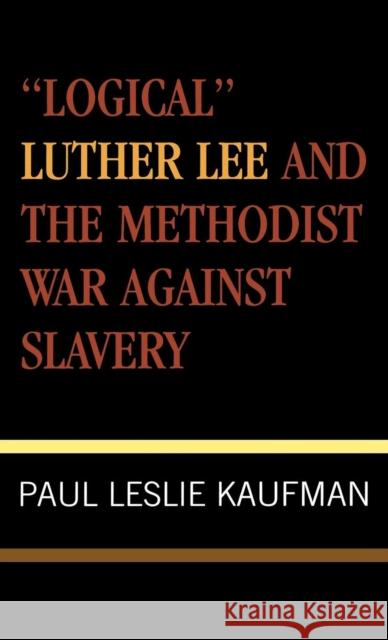'Logical' Luther Lee and the Methodist War Against Slavery » książka
'Logical' Luther Lee and the Methodist War Against Slavery
ISBN-13: 9780810837102 / Angielski / Twarda / 2000 / 296 str.
Luther Lee, D.D. (1800-1889), one of the founders of Wesleyan Methodism, was a nineteenth-century reformer and an ordained minister in the Methodist Episcopal Church. Lee is known to most Methodist historians as a Methodist Episcopal minister who deserted the church that had brought him to spiritual birth and ordination. Wesleyan Methodist church historians know him as the first president of their denomination, an editor of their periodical, and unfortunately, a traitor who betrayed and then subsequently walked away from the church he had helped to establish. His significance to American history has not heretofore been observed. This volume explores Lee's life, his politics, and his theology. One of the author's particular foci is the extent to which Lee affected the antislavery movement. Paul L. Kaufman places Lee within the broad context of nineteenth-century reformism as he battled the "gag rule" of the Methodist Episcopal bishops, and then shaped the Wesleyan Methodist Connection while he served on the highest levels of Garrison's American AntiSlavery Society. Of interest to students and teachers of Methodism, American history, and the abolitionist movement.











